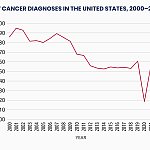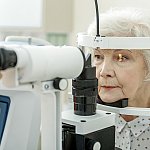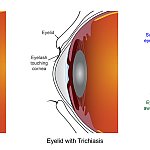
As the longest-running cast member of the iconic variety show “Saturday Night Live,” Kenan Thompson knows how to make audiences laugh.
Now, for the first time, the actor and comedian is putting jokes aside to talk about something serious: gastroesophageal reflux disease (GERD), a digestive condition in which stomach contents are pushed back into the esophagus.
GERD can cause heartburn, frequent burping, discomfort, trouble swallowing, and other uncomfortable symptoms.
Thompson is one of about
“GERD is no joke. It’s uncomfortable,” Thompson told Healthline.
In his mid-30s, Thompson began experiencing intense heartburn that interfered with his sleep.
“It’s definitely given me restless rights, which is not helpful when you’re trying to perform and you’re already dealing with a lot of stress,” he said.
GERD has also impacted his vocal range during comedy skits.
“I’ve blown my voice out a lot easier than I thought I would just by singing a song or something and all the sudden I’m hoarse,” Thompson said.
Thompson said his symptoms were at their worst when his eating habits were at their worst. He pointed to soda and pizza as two culprits.
“I would have flareup moments and not really understand what was necessarily going on or just not putting two and two together that I was doing this to myself. I was kind of like ‘oh I guess that pizza was a little spicier than I recall or was paying attention to,’ not really kind of acknowledging my involvement in it,” he said.
In his early 40s, he was diagnosed with non-erosive GERD, which means the condition does not cause damage to the esophagus as it does with erosive GERD.
“GERD is diagnosed clinically by history with your physician,” Kavita Kongara, MD, gastroenterologist and chief of motility at Northside Hospital, told Healthline.
“If further testing is warranted, an upper endoscopy can determine the sub-type of GERD you may have, which includes non-erosive GERD, which impacts two out of three people, and erosive GERD.”
After years of trying over-the-counter medication only to gain temporary relief, Thompson’s doctor prescribed him the medication Voquenza (vonoprazan).
“[Despite] using over-the-counter medications and prescription treatments like antacids, histamine-2 receptor antagonists, or proton pump inhibitors, some people with GERD continue to experience persistent, bothersome symptoms,” said Kongara.
So was the case for Thompson, who wanted a longer-term solution for his symptoms.
“It was almost like I couldn’t eat pizza without having a no-sleep night, and you can’t live like that. I got to eat my pizza; come on,” he said.
Today, his GERD is well-managed.
“I’m not so worried about those specific [food] triggers anymore,” he said. “I don’t eat them as often as I used to raise that acidic level [but] at the same time, I don’t necessarily worry if I do have an issue because now I have medicine so I know what to do and what not to do and if there is a slip up I have a safety net.”
To spread awareness about GERD, Thompson is sharing is story as part of the “GERD IS NO JOKE” campaign.
“If I can change one life, great, and if it’s more based on the following that I have, even better, but I definitely want to get the word out because if there are people that are suffering and they don’t have the information, it will definitely help me sleep at night to help another person,” he said.
Thompson also does not rule out the possibility of an SNL skit on GERD to gain more awareness about the condition.
“[Now] that I’m up on the radar talking about it… it might inspire a writer to write about it,” said Thompson. “You never know; I might just have to do the Weekend Update version of myself.”
While clinical evidence is limited and sometimes inconsistent regarding the impact of foods on GERD, Anna Beery, registered dietitian nutritionist at The Ohio State University Wexner Medical Center, told Healthline many people find that certain foods trigger symptoms.
Eliminating trigger foods can, therefore, help minimize symptoms. Examples of reflux trigger foods include:
Beery added that other foods to avoid eating frequently include red meat, fried foods, sweets, and fast food.
“A great way to figure out which foods can be triggering would be keeping a food journal,” she told Healthline. “Writing down foods, quantities, and symptoms can help determine which foods may be triggering. Documenting meal timing, stress, and sleeping habits can be helpful as well.”
Regarding what to eat, Beery cited research suggesting that a primarily plant-based diet may improve GERD symptoms.
“This is not necessarily a vegan or vegetarian diet. This is a diet that is focused on eating more fruits, vegetables, legumes, and whole grains. Healthy, plant-based oils such as olive oil are recommended in moderation,” she said.
Because research also indicates that fiber may help decrease GERD symptoms, Beery suggested the Mediterranean diet.
“This diet is high in vegetables, fruits, whole grains, beans, nuts and seeds, olive oil, and seasoning with herbs and spices,” she said. “Each day, eat fruits and vegetables, whole grains and plant-based foods. Each week eat fish, poultry, beans, legumes, and eggs with [a] moderate amount of dairy.”
In addition to dietary modifications, Beery said eating five to six smaller meals per day can be beneficial, and that the timing of meals matters, too.
“Lying down less than two hours after eating can increase stomach acid production,” she said. “Avoid eating the largest meal at the end of the day.”
Other lifestyle habits like sleeping in a proper position with the head of bed raised can decrease acid backflow.
“Better sleep in general, may decrease GERD,” said Beery.
Additionally, because obesity is linked to increased symptoms of GERD, she said maintaining a healthy weight and increasing physical activity can help manage symptoms.
Overall, managing GERD is personalized and there is no one-size-fits-all.
“GERD can be complex with trigger foods differing and symptoms varying from person-to-person,” Beery said.





